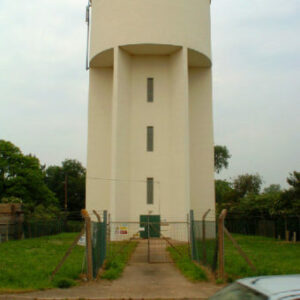What is Legionella?
Legionella is a pathogenic, waterborne bacterium that causes Legionellosis – the potentially serious Legionnaires’ disease – and the similar, but less serious Pontiac fever and Lochgoilhead fever. Legionella bacteria is commonly found in water, occurring naturally in lakes and rivers but has also been found to thrive and dangerously multiply, in artificial water systems. Colonies of Legionella will enjoy and flourish in temperatures between 20-45°C and where nutrients are available. Below 20°C the bacteria will lie dormant and can not survive in conditions over 60°C. Simple steps can be taken by property owners/managers to ensure favourable conditions are avoided. A Legionella eLearning course is the first step to a safer water system.
What is Legionnaires’ disease?
Legionnaires’ disease is a severe, often lethal, form of pneumonia caused by the bacterium Legionella pneumophila. The disease is contracted by inhaling water droplets containing the Legionella bacteria. Symptoms include, muscle aches, tiredness, headaches, dry cough and fever. Sometimes diarrhoea occurs and confusion may develop. For most people, the risk of developing Legionnaires’ disease is very low, but if infection occurs it can lead to long term health problems. Anyone can develop Legionnaires’ disease, but the elderly, alcoholics, smokers, cancer patients and those with diabetes and respiratory weakness are more at risk.
 Public Health England (PHE) has revealed that cases of Legionnaires’ disease in 2014, contracted both at home and abroad, remain under the total seen in 2010. In 2012, 306 confirmed cases were reported, down from 357 cases of the respiratory disease in 2010. Around 40% of confirmed cases in 2012 were associated with travel abroad, with the greatest number of cases seen in individuals travelling to Spain.
Public Health England (PHE) has revealed that cases of Legionnaires’ disease in 2014, contracted both at home and abroad, remain under the total seen in 2010. In 2012, 306 confirmed cases were reported, down from 357 cases of the respiratory disease in 2010. Around 40% of confirmed cases in 2012 were associated with travel abroad, with the greatest number of cases seen in individuals travelling to Spain.
The incidence rate for England and Wales over the 3 year period (from 2010 to 2012) was 5.33 cases per million population (pmp). The peak incidence was in the areas covered by the East Midlands PHE Centre (7.72 pmp), the West Midlands (6.54 pmp) and Avon, Gloucestershire and Wiltshire PHE Centre (6.23 pmp).
Under the Health and Safety at Work Act 1974, Control of Substances Hazardous to Health Regulations (COSHH) and Management of Health and Safety at Work Regulations, all employers have a legal duty to ensure the safety of the people who use the premises, and this includes protecting against the risk of Legionellosis.
What is Legionella? – What kind of organisation need to know about it?
 Legionella is a potential problem where ever water systems such as cooling towers, evaporative condensers and hot and cold water are present. A wide range of organisations, groups, or self-employed individuals providing residential accommodation are responsible for the water system(s) in their premises, and will have duties in this regard. These include local authorities, universities, housing associations, including housing companies, charities, hostels, landlords in the private renting sector, managing agents, hoteliers, B&B, guest house and holiday camp owners, caravan and camping site owners, including fixed caravan sites.
Legionella is a potential problem where ever water systems such as cooling towers, evaporative condensers and hot and cold water are present. A wide range of organisations, groups, or self-employed individuals providing residential accommodation are responsible for the water system(s) in their premises, and will have duties in this regard. These include local authorities, universities, housing associations, including housing companies, charities, hostels, landlords in the private renting sector, managing agents, hoteliers, B&B, guest house and holiday camp owners, caravan and camping site owners, including fixed caravan sites.
The Health and Safety Executive (HSE) offers advice on how to control water temperature, check water systems for contamination, check pipework, take water samples and implement any other appropriate control measures
As employers, you have a moral and legal duty to protect employees and members of the public. Training all levels of staff will help raise awareness and protect them from potential contamination.
The EssentialSkillz Legionella eLearning course explains what Legionella is and how it can affect human health, when medical advice should be sought and what should be reported under RIDDOR, the Reporting of Injuries, Diseases and Dangerous Occurrences Regulations.
The online course describes the common symptoms of Legionella-related diseases. It also describes how to identify conditions where the Legionella bacteria might thrive, in the context of an effective water management system.
The eLearning module outlines the responsibilities that employers have with regard to the health, safety and welfare of not only their employees, but to anyone who uses their facilities. This includes an effective risk identification, management and control process.
All EssentialSkillz courses can be customised to meet the specific needs of your organisation, at no additional cost. The Legionella eLearning course can be tailored to explain your specific water management system, your approach to risk management and how protecting against Legionella fits in with your broader health and safety policies. Your designated course administrator can edit the text and images within the course, and link to organisation-specific documentation.
Looking for in-depth and engaging health and safety training? Explore our comprehensive eLearning library and try any of our courses for free.








